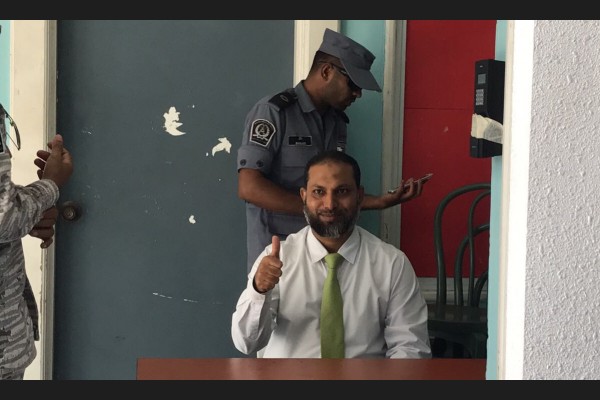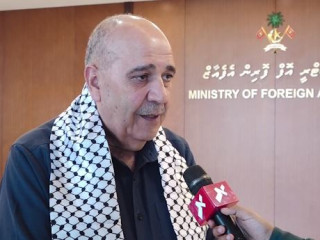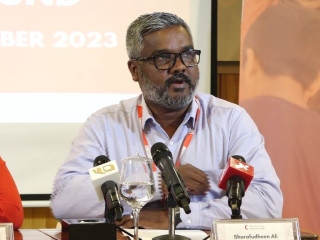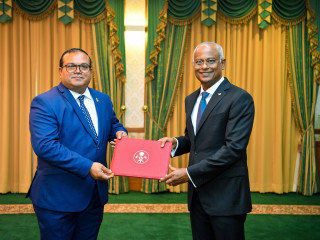The High Court has concluded its hearings for opposition Adhaalath Party (AP) leader Sheikh Imran Abdulla appeal to overturn the 12-year prison sentence against him.
Sheikh Abdulla had appealed the Criminal Court verdict less than a week from February 16, 2016, when it was issued. The High Court had only begun proceedings a month later.
Further, the hearings for the appeal were reportedly concluded in April, 2016 and while sentence hearing was to be held last month, the hearing had been cancelled.
Tuesday’s hearing was held to familiarize Judge Abdulla Didi, who is now presiding over the case after the previous sitting judge, Shujau Usman, was transferred to a High Court branch in the south.
Judge Didi had said that there were no more proceedings to conduct and that sentencing would be carried out in the next hearing.
The Maldivian Democracy Network, a local NGO, had petitioned his prison sentence to the United Nations’ Working Group on Arbitrary Detention, which is yet to decide on the allegations of political favoritism and unjust trials.
The Group had ruled that the verdicts against former President Mohamed Nasheed and former defence minister Mohamed Nazim had been unlawful, and called on the government to repeal them. However, the government had rejected this.
Sheikh Abdulla was sentenced for inciting terror and violence, through a speech he gave at an opposition rally in 2015, and for ‘neglecting’ to stop a protestor’s attack on a police officer.
Prosecutors argued that while the sheikh’s speech was conducive to violence, he had not taken responsibility for the ‘violent result’ of the protest, further citing damage to property and public peace.





